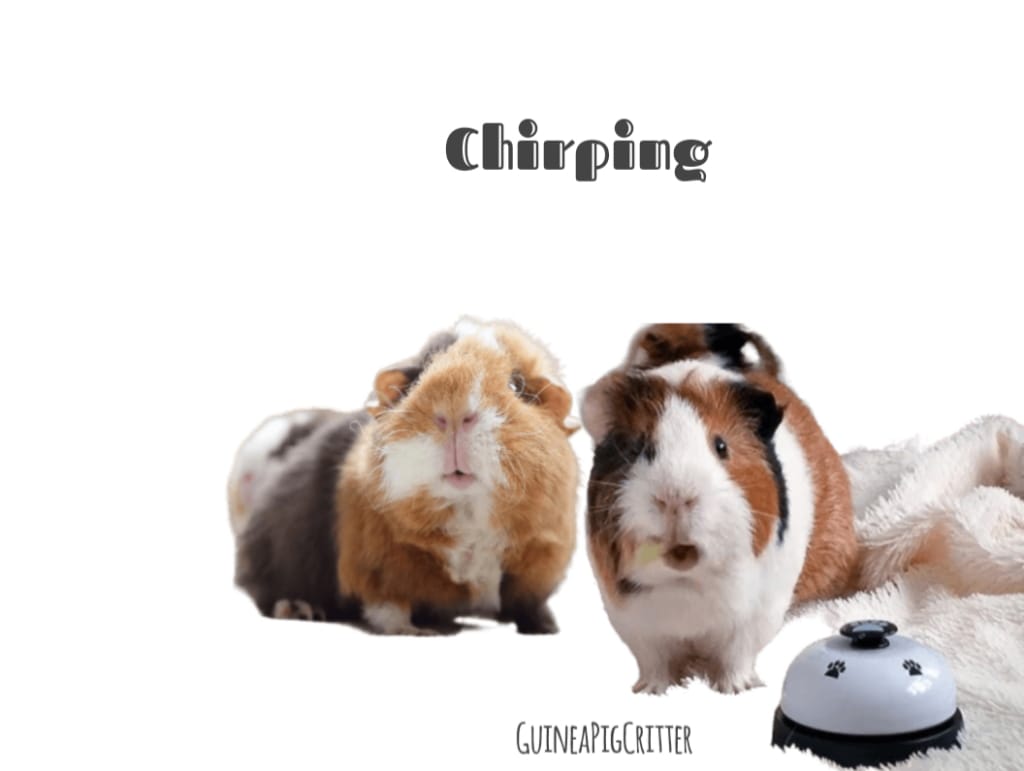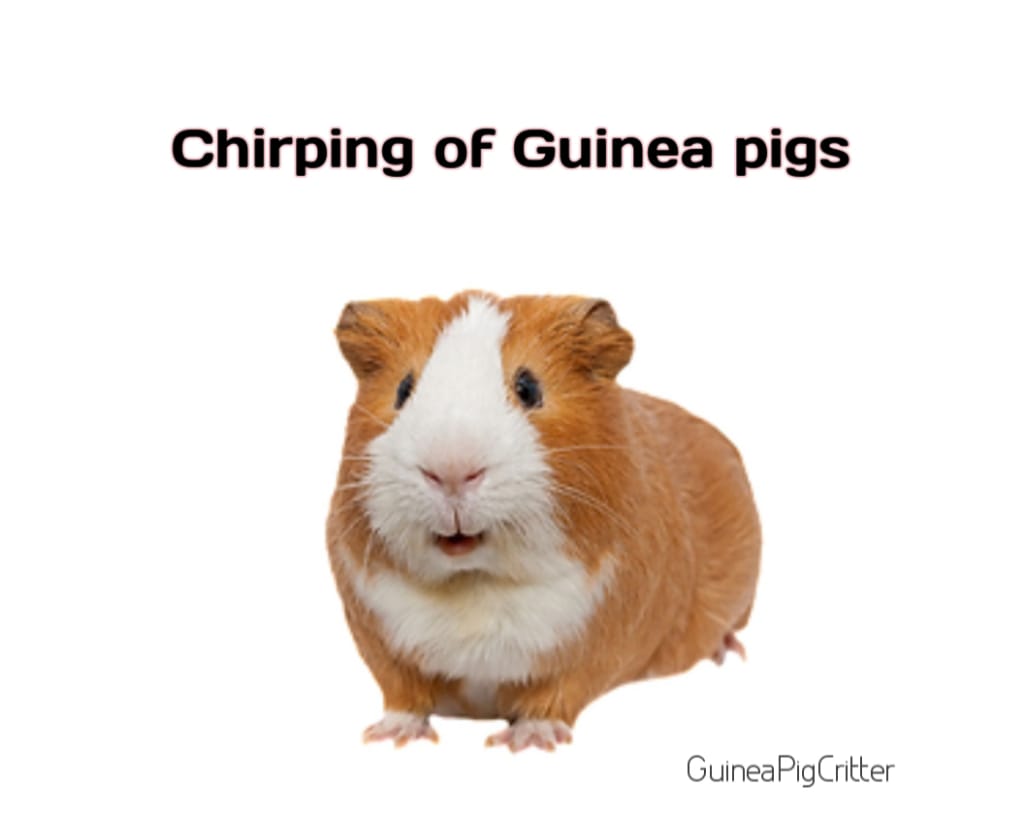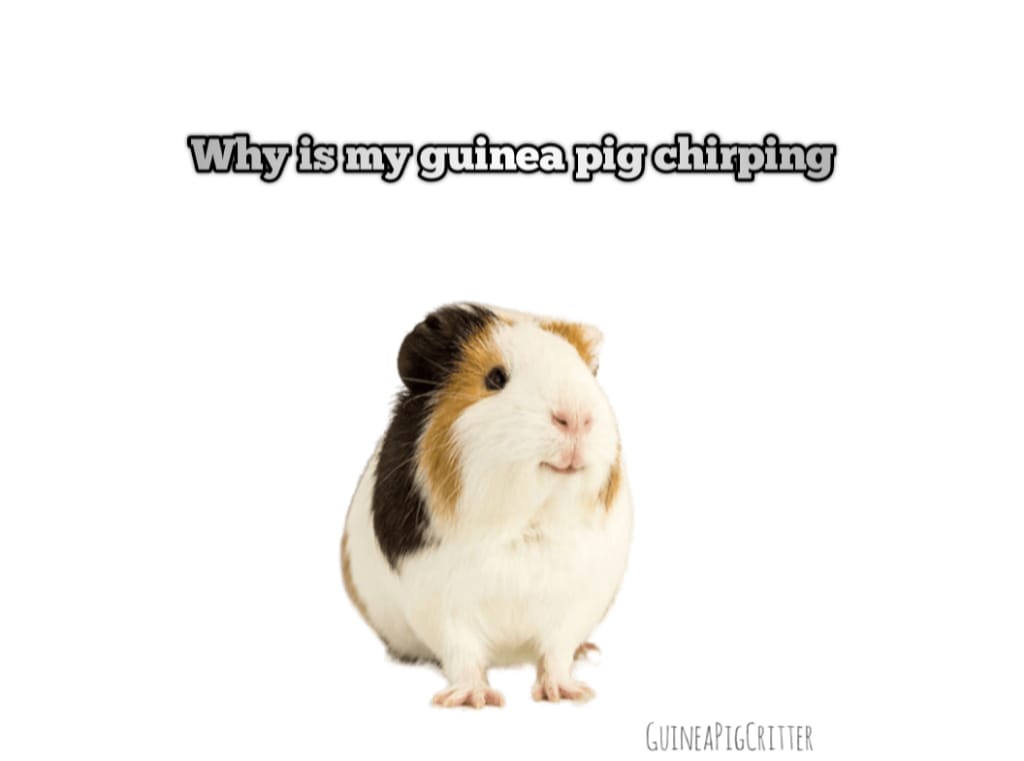Also known as cavies, guinea pigs are quiet friendly animals that people enjoy keeping as pets because of their sociability. They are different for quite a number of small animals because they can make many different sounds within their lifespan that are meant for different purposes.
A specific sound that is rather fascinating is the chirp — a commonly produced high pitch sound, and many pet owners often wonder what it means. Apart from the need of ensuring proper care of your pet guinea pig, understanding the reasons behind the chirrups of your pet is a way of bettering your relationship with your pet.
Chirping is a distinctive vocalization that speaks out a number of different states or feelings ranging from elation to anger. In this blog post, we will discuss further the reasons for this sound, as well as the general situations within which this makes itself known and what it could relate to your guinea pig’s emotions.
See this post :-How to train a guinea pig?
What is Chirping?
Chirping Defined: Chirping is a particular form of vocalization comprised of repetitive short high-pitched sounds. This is a sound that is considered to be outside the ordinary range of guinea pig sounds. Some guinea pigs choose not to chirp, while the emotional ones will rather do the loud chirping which they may even go on and do a few series when they are overwhelmed with emotions.
Comparison with Other Sounds: It further helps one to deliberate about chirping by juxtaposing it with other prevalent sounds of guinea pigs. For example:
Wheeling: This is a hoer noise which indicates excitement usually brought by feeding or presence of an owner.
Purring: A quieter version of the sounds that may show satisfaction but may actually be irritation to some degree when coupled with other distress behaviors.
Chattering: Quick noises produced by teeth that may be repeated frequently. It is more of an annoyed sound without any fighting activity commencing, common among male guinea pigs.
Cognition of these sounds is contribution in assisting guinea pig pet owners in identifying and interpreting emotions of their pets more effectively such that the needs of the pets are well attended to.
Common Reasons for Chirping
Excitement and Happiness Emitted by Chirping – Different emotions, different chirps – Excitement and, happiness can often be signified with chirping. We see this with a lot of pets. For instance, whenever you come back from being out, your guinea pig will usually chime with a welcoming noise. In most cases, the sound is accompanied by bursts of activity such as running, leaping or even popping (that is, when they gasp and dash about the place in all directions).
To promote this behavior, there is a need to provide positive reinforcement in the surroundings. Take out some of their toys and play with a tunnel and some fun activities. Increasing the frequency of lap time or gentle rubbing of their bodies may also brighten their mood thereby increasing the amount of chirping done thanks to the joy felt by the guinea pigs.
Communication With Other Guinea Pigs They are social animals and therefore need to be with other guinea pigs. Children love the game which chomping are participates in with each other. So does one of the guinea pigs. While chasing after another guinea pig, if the first guinea pig does a high-pitched chirp, it will most likely be part of the game.
Regarding the socialization of guinea pigs in multi-pet households, it may be of interest to note the communication between the pets. Proper bonds within the group may be indicated by the variations in the chirping of individual guinea pigs. High chirping events among the pets are generally a good sign as it shows that the pets are engaging and feel safe.
Attention Seeking Encountering a persistent chirping request when you are trying to stroke your guinea pig, for example, will not always seem to be connected with stress – they seem to be exercising something rather like a need for attention. If they have figured out that chirping causes positive consequential action (e.g. treats, being picked et terrace) this vocalization may be a tactic for them to engage you.
You might find chirping out of your guinea pig all day long; ask yourself if you are interacting with and stimulating your guinea pig enough. Instead of just talking back to them when they chino, you may get them more toy or a food appropriate for this occasion and reinforce the connection. Although too much resistance to this attention-seeking behavior in the absence of examination is unhealthy, it is important to prevent this from growing too far by including formal activity interludes.
When Chirping Might Indicate Distress
Stress or fear Often where there is chirping, joy is evident but it doesn’t always mean that. It may likewise mean stress or fear. Abrupt changes in their surroundings like loud new pets or changes in day-to-day activity can be sources of stress to guinea pigs.
If your guinea pig starts to make weird chirping sounds and seems to be stressed, hiding, breathing too fast or even refusing to eat, then it is time to check the environment.
A wise guinea pig owner knows how to relieve stress by providing a suitable atmosphere for the pet. This is achieved by:
Quiet Spaces: Make sure their cage is not placed where loud televisions, music and the rest would disturb the pets.
Safe Hiding Spots: Ensure there are enough hiding spots such as tunnels and small boxes that they can go into in case they get scared.
Routine Maintenance: Follow feeding and cleaning routines such that irregularities that would make the pet anxious are avoided.
Illness or Pain In some cases, it may be an ‘acoustic’ sign as a result of an illness or pain distress. If you see your pet guinea pig chirping rather unusually basically more than normal or excessive period of time, especially along with being lethargic, not eating well and behaving abnormally it could be an indication of disease. The most frequent problems causing such excessive chirping are usually the following:
Respiratory Issues: Such as pneumonia which restricts breathing resulting in cross chirps.
Dental Problems: In the case of gum suffers dental pain, they will complain a lot than normally probably since it is hard for them to chew and eat.
Gastrointestinal Distress: Other general issues like bloat can cause discomfort and lead them to distressed calls.
In the case that you believe your guinea pig is ordering a infamous pulsating sound known as chirping, it will be helpful if you go to a veterinarian right away. If the concerned health problem is dealt with at the appropriate time, then it is likely that such risks can be prevented.
See this post :-how to make a guinea pig house?
How To Sound Off When Your Guinea Pig Chirps Who Has Been Attacked
Assessing the Situation As with most behaviors and sounds that an animal makes, weighting up events preceding the sound seldom holds true. Begin by looking for the external factors that are present whenever chirping is performed.
Are there common situations, like the Marquette making, when the animal is fed, people come to the house, when the chant is sung? You also start recording your guinea pig’s sounds or behaviors in particular situations which may help you gain extra insight into the factors that your guinea pig’s cheeps and grunts are trying to communicate.
While you are watching your pet, consider the following aspects:
Body Language: Analyze whether other activities such as jumping, hiding or chewing are experienced. Whenever a pet is happy and alters its chirps to that of excitement some rather energetic activity might be going on but when a pet cries this way, shunning or running quenches the raider’s rage
Time of Day: Record which of the participated in voice of the guinea pig was more active during the different times. For example, if there is hyperactivity parading in the guinea pig and he goes into a lot of singing in the night hour, do not be surprised that it is seeking some social interaction.
Creating a Comfortable Environment A guinea pig also experiences ease with stress when given a comfortable environment. Consider applying the following:
Cage Size and Setup: Make sure your guinea pig’s cage is of a reasonable size so that the guinea pig can move around and explore as appropriate. Constructing multiple levels or adding tunnels can their home more exotic.
Enrichment Activities: Give them different toys to play with like chew toys, balls and resting places to engage their minds and to control their boredom.
Routine Maintenance: Straighten the habitat and feed the resident guinea pigs at regular intervals to provide a sense of consistency in the environment.
With adequate environmental provision, a guinea pig will be relaxed and comfortable hence moments of their chirping will be more soothing.
Conclusion
To sum up, chirping is a very interesting sound that conveys numerous feelings to guinea pigs including happiness, excitement, stress and even discomfort. Equipping them with knowledge of the various occasions of chirping will enable pet owners to adequately attend to the needs of the guinea pigs.
It does not matter whether your pet is chirping for joy when they spot you or due to some trouble: your awareness and reaction in both shades will influence their condition greatly.


